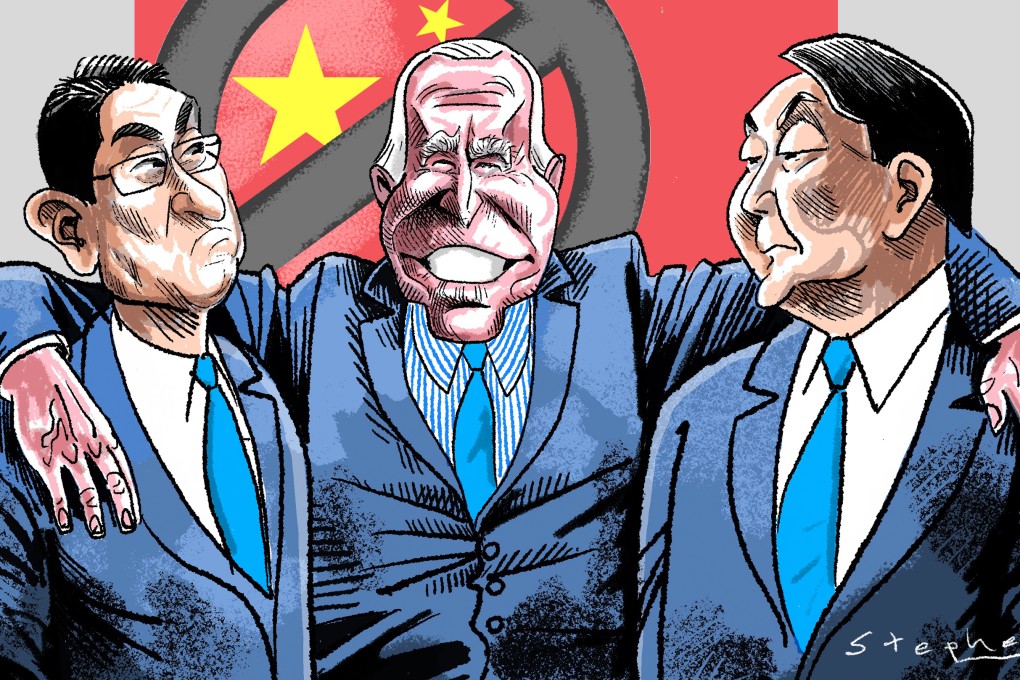Advertisement
Opinion | The US-Japan-South Korea alliance against China has a formidable foe: history
- Bringing Japan and South Korea closer together despite their historical animosity is a diplomatic triumph for Joe Biden, but public support for warmer ties between them is far from certain
- Japan and South Korea’s economic interdependence with China is also not so easily dismissed
Reading Time:4 minutes
Why you can trust SCMP
58

Speaking during his summit at Camp David with Japanese Prime Minister Fumio Kishida and South Korean President Yoon Suk-yeol, US President Joe Biden said of the event: “We have laid in place a long-term structure for a relationship that will last and will have a phenomenal impact not just in Asia but around the world.”
From his point of view, Biden has ample reasons to be enthusiastic about this significant diplomatic undertaking. He has successfully realised two crucial goals. First, he has dispatched a resounding note across the Pacific to China that, without officially declaring a new cold war, the United States is now going full-throttle to counter China in the spheres of diplomacy, economy and technology.
Second, the summit has helped reassure his Democratic Party backers. It shows his global political assertiveness against the confrontational shadow cast by former president Donald Trump, whose popularity remains high despite his many legal troubles.
China has clearly taken centre stage in Biden’s foreign policy strategy. He has committed to reinforcing existing alliances – as seen in the US-led Quadrilateral Security Dialogue and Aukus agreement – while also moving to forge new alliances across the Indo-Pacific.
There is little doubt the Camp David summit was focused on China, yet Biden was careful to say during a joint news conference that the summit’s agenda extended beyond China. Biden said that “this summit was not about China. That was not the purpose of the meeting. But ... China obviously came up.”
That statement appeared to gloss over what has become a gravitational force in US foreign policy in recent times.
Advertisement
